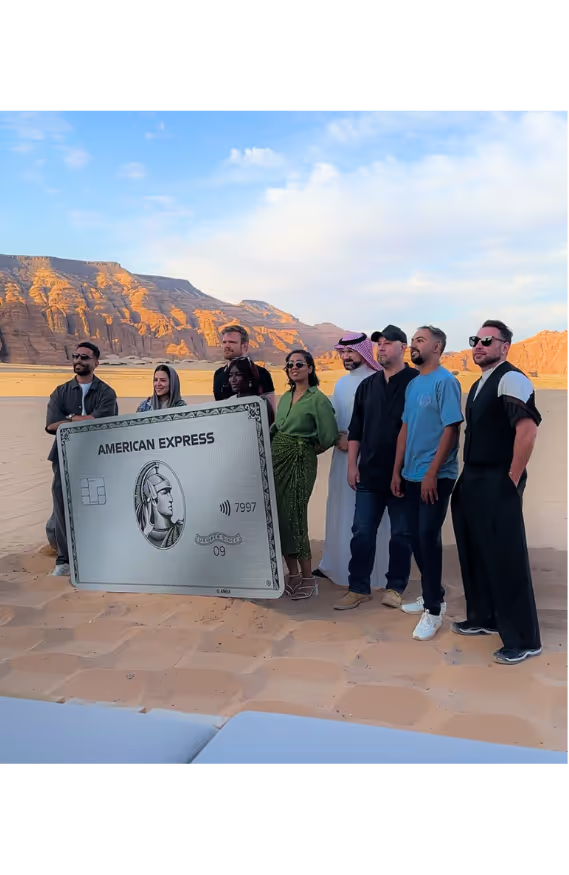6 mins
Ethical Considerations of Influencer Marketing: Transparency and Disclosure in the UAE
Influencer marketing ethics have become a significant issue in the United Arab Emirates, as influencers are recognized as a powerful tool for transforming brand interaction with their followers.
The dynamic social media environment and the highly skilled technology population in the UAE have enabled these marketing campaigns to flourish.
From hidden sponsorships to exaggerated product claims, the rapid rise of this marketing tactic has raised numerous ethical concerns.
"How can brands, influencers, and public relations agencies stay true to their core values and maintain the confidence of their audience?" is the most critical question nowadays.
Rise of Influencer Marketing and Its Ethical Dilemmas
The UAE has one of the highest social media dispersion rates in the world. Influencers hold considerable influence over public opinion.
Ethical issues now take center stage as companies increasingly rely on these numbers for audience-specific advertising.
Some influencers refrain from revealing paid relationships, which is perceived as a dishonest approach, as it may lead the audience to feel they are not experiencing a genuine story.
The Boomerang Guide for Influencers in the UAE specifically addresses this point.
Other influencers promote products or services without checking their quality.
These ethical transgressions not only adversely affect consumer trust but also compromise the integrity of the entire industry.
Importance of Transparency in Influencer Marketing
Transparency is the foundation of influencer marketing ethics as Emirati consumers evaluate honesty and authenticity.
For audiences, transparency refers to honesty; for official bodies, it guarantees legal compliance.
In the UAE, the close protection of cultural considerations, religious standards, and national identity makes lack of transparency particularly problematic.
When influencers fail to disclose sponsorships or provide misleading information, they risk losing followers and potentially face legal penalties.
Transparent labeling, such as using tags, is not only a recommendation; it is an ethical duty and a moral necessity.
The UAE government provides restricted regulations for influencer campaigns
Trust: Coinage of Influencer Marketing Ethics
Trust is the hidden coin that energizes influencer marketing ethics. Influencer marketing relies on a third-party opinion, unlike traditional advertising, where the brand speaks directly to the consumer.
Consumers in the UAE are highly discerning, and it’s challenging for them to regain confidence in a trust-violating influencer.
A successful influencer understands that their brand is as important as the products they promote. Therefore, they carefully select partnerships, endorse only what aligns with their values, and communicate honestly with their followers.
For brands operating in the UAE, choosing the right influencer means picking someone who already enjoys the trust of your target market.
Best Practices for Influencer Marketing Ethics
To sustain ethical standards in influencer marketing, influencers and brands in the UAE should adopt a set of best practices:
Clear Sponsorship Declaration
Always clearly identify paid content.
Honest Representation
Avoid amplifying product benefits or making unverifiable entitlements. Influencers must study and experience products before accepting them.
Audience Respect
Be culturally conscious and respectful, avoiding content that could be deemed aggressive or misleading.
Long-Term Relationships
Promoting ongoing collaborations over one-time events shows followers' honesty.
These practices fortify audience confidence and protect all sponsors, including brands, influencers, and agencies, from reputational and legal risks.
Considerations in Influencer Marketing Ethics
The ethics of influencer marketing extend beyond compliance and disclosure. It incorporates responsibility toward the public good, environmental impact, and integration.
For example, it is forbidden to promote dietary supplements or unproven medical treatments even with disclosure.
Promoting content that is in opposition to national customs or Islamic values may have serious cultural repercussions in the United Arab Emirates.
The good and moral influencer must take into account the legal and ethical aspects, which are particularly important in a state like the UAE, where a high value is placed on communal morality and national image.
Ethical Guidelines for PR Agencies in GCC and UAE
Public relations agencies play a critical role as intermediaries between brands and influencers.
Their ethical responsibility is
- Brands need guidance on choosing influencers who share their values and on educating influencers about disclosure and compliance.
- Agencies should develop internal codes of conduct, deliver training programs on ethical marketing, and monitor influencer content for compliance with relevant laws.
- PR agencies must act as protectors of public interest, not just commercial intermediaries, in the UAE, where national reputation and consumer safety hold significant importance.
The Ethical Impact on Industry Norms, Consumer Behavior, and Compliance
The UAE's consumers are increasingly questioning hidden sponsorships and demanding greater credibility, which has led to a shift in business standards nationwide.
As a result, brands are being pushed toward long-term ethical arrangements rather than short-term promotional revenues.
Regulatory bodies, such as the National Media Council (NMC), intensify their monitoring, making compliance non-negotiable. Ethical behavior is not a marketing option.
Regulating Influencer Marketing in the United Arab Emirates
All paid influencers in the UAE are required to obtain a UAE Media License from the National Media Council (NMC), a proactive approach applied by the Emirati government to regulate influencer marketing.
Working without a license as an influencer can result in severe financial penalties. Moreover, the NMC mandates the clear and prominent disclosure of all funded content.
These regulations aim to protect consumers from misleading advertising and maintain the accuracy and transparency of the digital market.
Agencies and brands must also certify that their influencer associates are acquiescent.
Licensing is an ethical commitment to transparency and responsibility, and not just a regulatory requirement.
You can explore all these regulations with the Boomerang manual for influencer licenses.
Postgraduate Certificate in Influencer Marketing Ethics
Several institutions in the UAE have begun offering a Postgraduate Certificate in Influencer Marketing Ethics, recognizing the importance of this field and its direct impact on society and national identity.
This academic certification offers in-depth knowledge about legal regulations, ethical outlines, digital analytics, and content integrity.
Aspiring influencers, PR professionals, and marketing executives who wish to work with integrity must possess such irreplaceable qualifications.
The UAE’s ambition is to expand and professionalize influencer marketing through a group of educational initiatives via several specialized institutions.
The UAE is regarded as one of the leaders in innovation and ethical governance worldwide; thus, influencer marketing ethics develop under the cover of openness and trust to achieve sustainable success in this field.
The degree of influencer marketing's ethical and transparent commitment will define its future in the UAE, not the influencer's popularity or loud voice. This applies to influencers, brands, and agencies in the United Arab Emirates (UAE).
How Boomerang, as a Dubai-Based Agency, Aligns with Ethical Considerations and Promotes Brands Without Ethical Conflicts
Boomerang, a Dubai-based influencer marketing agency, ensures ethical brand promotion in the UAE by strictly adhering to regulations like the NMC license.
We prioritize transparency through clear disclosures and rigorously vet influencers for authenticity and alignment with cultural values.
Our commitment extends to promoting public good by advising against harmful products and educating all parties on ethical practices.
This approach safeguards brand reputation and builds trust in the dynamic UAE market.
Are you prepared to initiate a socially responsible and significant influencer marketing campaign in the UAE?
Contact Boomerang today to discuss how we can help your brand grow responsibly.



